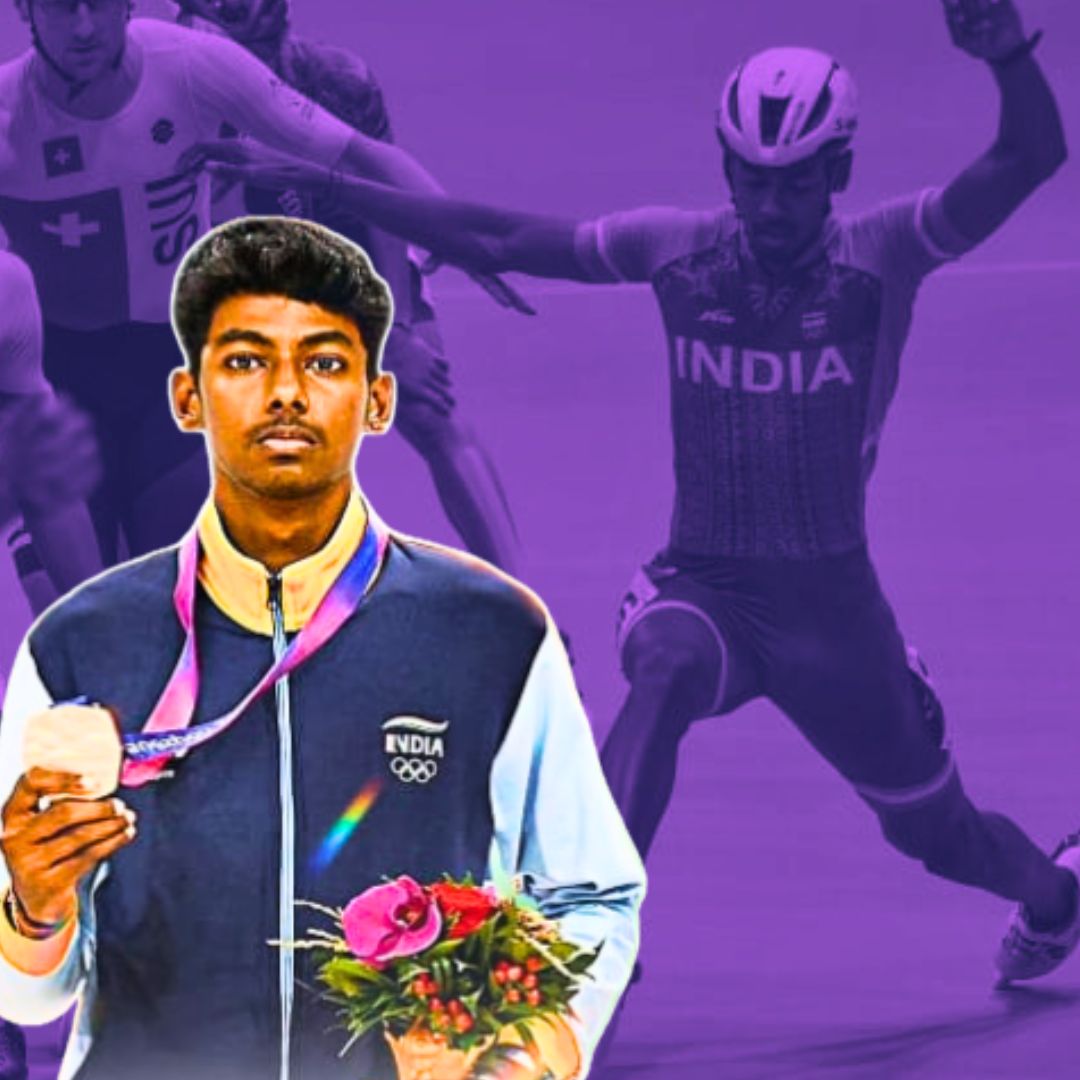Anandkumar Velkumar, a 22-year-old athlete from Tamil Nadu, has made history by winning India’s first-ever bronze medal in roller skating at the World Games 2025 held in Chengdu, China. Competing in the Inline Speed Skating Track – Men’s Sprint 1000m event, Velkumar clocked an impressive 1:22.482 to clinch third place, narrowly edging out Swiss competitor Livio Wenger by just 0.1 seconds.
This monumental achievement not only marked a personal triumph for Velkumar but helped India record its best-ever medal haul at the World Games with three medals. The Indian Olympic Association and the Ministry of Youth Affairs and Sports praised the milestone, highlighting its significance for non-mainstream sports in India.
A Historic Medal That Shines a Spotlight
Velkumar’s bronze medal is historic on multiple fronts. It is India’s first-ever podium finish in roller skating at the World Games, an event showcasing sports beyond the Olympic roster. The 1000m sprint race was intensely competitive, with Velkumar using tactical skill and endurance to hold a strong position throughout before making a final surge. Initially finishing fourth, he was later awarded the bronze after a competitor’s disqualification, illustrating the fine margins that shaped this podium finish.
His timing through the heats and semifinals – 1:22.151 and 1:20.355 respectively – demonstrated consistent peak performance against the world’s best. Velkumar’s success is a testament to his hard work, rigorous training, and unparalleled focus.
Indian Olympic Association President P. T. Usha congratulated Velkumar, calling his achievement “a milestone moment” for Indian sports beyond well-known disciplines. The Ministry of Youth Affairs and Sports also lauded Velkumar’s success, stating that the medal “marks a proud chapter for Indian athletes on the international stage.” Velkumar’s victory inspired widespread acclaim on social media and from fellow athletes, underscoring a growing appreciation for non-mainstream disciplines in India.
The Road Less Travelled: Velkumar’s Journey
Anandkumar Velkumar’s achievement carries even greater weight considering the obstacles he overcame. Roller skating remains a relatively niche sport in India, plagued by limited infrastructure, scarce funding, and minimal media coverage. Unlike cricket or athletics, its practitioners often train on makeshift or poorly maintained tracks and face challenges accessing international-level coaching and equipment.
Velkumar’s success did not come overnight; he had previously become the first Indian to win a medal at the Speed Skating World Championships in 2021 and also contributed to India’s bronze at the 2023 Asian Games in roller sports.
Velkumar’s training regimen is meticulous, including early morning and evening sessions focused on speed, endurance, and technique. His coach emphasizes his discipline and mental toughness as key factors behind this historic medal. The government of Tamil Nadu has recognised his talent with substantial cash awards, and his achievements have sparked hopes of greater institutional support for roller sports in India going forward.
The Logical Indian’s Perspective: Beyond Medals, Towards Inclusive Sporting Growth
Anandkumar Velkumar’s bronze medal victory is more than an individual sporting triumph-it is a beacon of hope for countless athletes striving in India’s lesser-known sports.
At The Logical Indian, we see his success as a call to action for broadening support and recognition in Indian sport beyond the mainstream. The narrative should shift from celebrating only a few popular disciplines to embracing the diverse sporting talents flourishing across the country despite systemic challenges.
Supporting emerging sports requires building accessible infrastructure, providing targeted funding, and creating equal opportunities within the sports ecosystem. Velkumar’s story embodies resilience, dedication, and passion-qualities that can inspire a generation of athletes. It also reminds us to view sportsmanship through a lens of empathy, inclusivity, and community support rather than mere medal counts.











